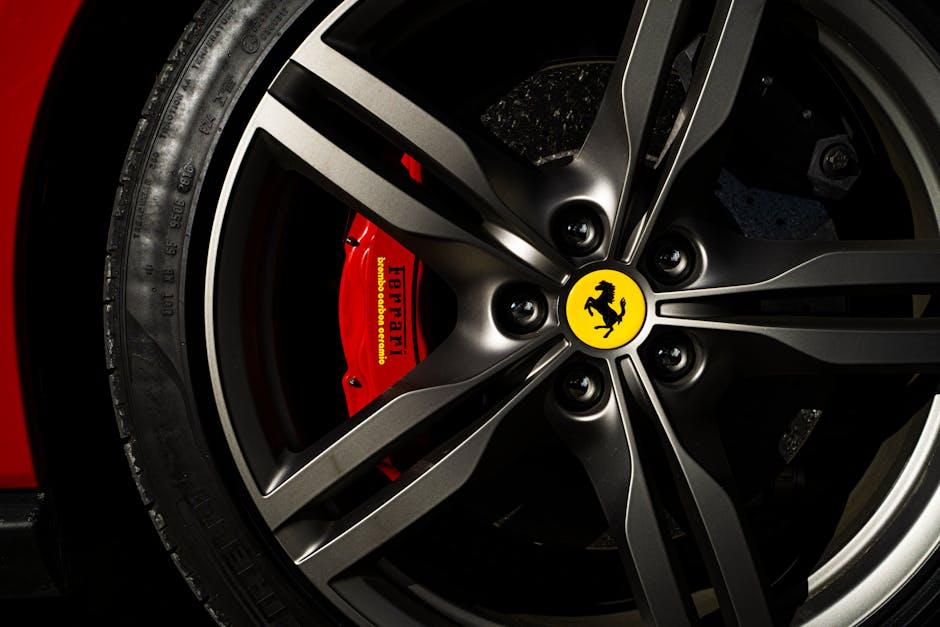When it comes to the safety and performance of your vehicle, few components hold as much importance as your brake pads. They are the unsung heroes working relentlessly beneath your car’s wheels, ensuring every stop is smooth, reliable, and secure. But with a market flooded with options, finding the best brake pad brand can feel like navigating a maze. Whether you’re a daily commuter, a weekend warrior, or a seasoned car enthusiast, choosing the right brake pads can make all the difference in driving confidence and vehicle longevity. In this article, we’ll explore some of the top brake pad brands that blend quality, durability, and value—helping you hit the brakes with assurance every time.
Table of Contents
- Top Brake Pad Brands Renowned for Safety and Performance
- Materials Matter Exploring Ceramic, Semi-Metallic, and Organic Pads
- How to Choose the Right Brake Pads for Your Driving Style
- Comparing Durability and Wear Resistance Across Leading Brands
- Eco-Friendly Brake Pads That Combine Efficiency and Sustainability
- Expert Tips for Maintaining Brake Pads and Extending Their Lifespan
- Q&A
- The Conclusion
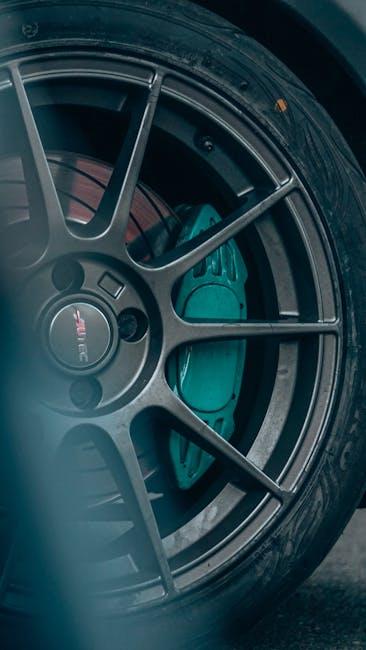
Top Brake Pad Brands Renowned for Safety and Performance
When it comes to ensuring your vehicle stops safely and smoothly, choosing the right brake pads is crucial. Industry leaders like Brembo and Akebono have long been trusted for their innovative brake technologies that marry durability with top-tier performance. Brembo’s high-performance pads are favored by car enthusiasts and racing professionals alike for their exceptional heat dissipation and consistent stopping power. Meanwhile, Akebono stands out with its ceramic brake pads that offer quieter braking and reduced dust, making them ideal for everyday driving without sacrificing safety.
Other notable brands such as Bosch, EBC Brakes, and Hawk Performance also deserve attention. These manufacturers prioritize rigorous testing and materials engineering to enhance longevity and responsiveness. Whether you’re navigating city traffic or steep mountain roads, these brands provide a reliable safety margin. Here’s a quick overview of their standout qualities:
| Brand | Key Feature | Ideal Use |
|---|---|---|
| Brembo | High-heat resistance | High-performance & racing |
| Akebono | Ceramic technology, low dust | Urban driving & quiet rides |
| Bosch | Consistent performance | Everyday reliability |
| EBC Brakes | Eco-friendly materials | Balanced performance & sustainability |
| Hawk Performance | Strong bite and fade resistance | Sport & off-road driving |

Materials Matter Exploring Ceramic, Semi-Metallic, and Organic Pads
When it comes to selecting the perfect brake pads, understanding the material composition is key to matching performance with your driving needs. Ceramic pads offer an excellent blend of durability and quiet operation. These pads generate less dust and maintain stable braking performance across a wide range of temperatures, making them ideal for everyday city driving and long highway journeys. On the other hand, semi-metallic pads excel in heat dissipation, giving superior stopping power during aggressive driving and heavy braking situations. Composed of a mixture of metals such as copper, steel, and iron, they withstand high friction and maintain effectiveness in harsh conditions but may cause more noise and wear on rotors over time.
Organic brake pads lean towards a softer composition, typically crafted from materials like glass, rubber, and Kevlar bonded with resin. They are gentle on the brake system, producing minimal rotor wear and providing a smooth, quiet ride. However, they may wear out faster and aren’t suited for extreme heat or heavy towing. To help visualize these differences, here is a quick comparison table:
| Pad Type | Advantages | Best For | Drawbacks |
|---|---|---|---|
| Ceramic | Quiet, low dust, durable | Daily driving, highway | Higher cost |
| Semi-Metallic | Great heat dissipation, strong braking | Performance, towing | Noisier, more rotor wear |
| Organic | Quiet, minimal rotor wear | Light driving, smooth rides | Faster wear, limited heat tolerance |
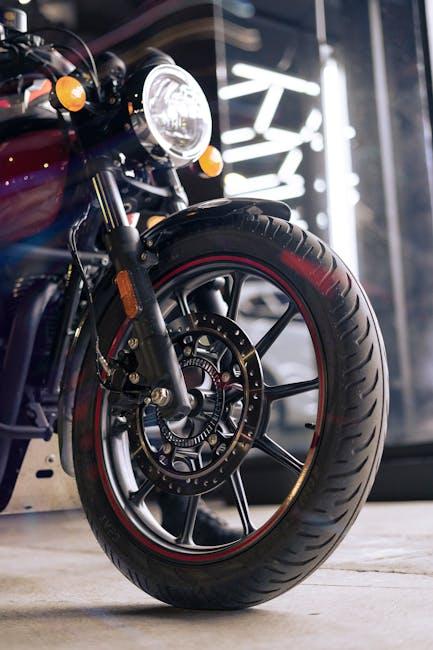
How to Choose the Right Brake Pads for Your Driving Style
Choosing the perfect brake pads means tuning into your personal driving habits and the conditions you face daily. For those who enjoy a spirited drive, pads offering high friction and consistent performance under heat are essential. Conversely, if your commute is mostly stop-and-go city traffic, pads designed for low noise and minimal dust could provide a cleaner, quieter ride. Off-road enthusiasts might lean towards pads with enhanced durability and resistance to abrasive materials, ensuring reliable stopping power in rough terrain.
Consider the following factors when selecting your brake pads:
- Driving Environment: Urban, highway, or off-road conditions demand different pad materials and designs.
- Performance Needs: High-performance versus daily stop-and-go usage impacts pad choice.
- Material Type: Ceramic, semi-metallic, or organic, each with unique benefits and trade-offs.
- Longevity & Maintenance: Some pads offer extended lifespan but may require special care.
| Driving Style | Recommended Pad Type | Key Benefit |
|---|---|---|
| City Driving | Ceramic | Quiet & low dust |
| Performance | Semi-metallic | High friction & heat resistance |
| Off-road | Semi-metallic/Organic blend | Durability & abrasion resistance |
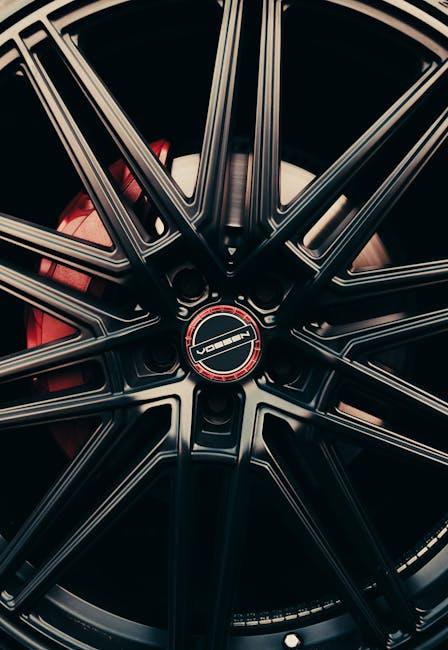
Comparing Durability and Wear Resistance Across Leading Brands
When it comes to resisting wear and maintaining longevity, brake pads are put to the test every time you hit the brakes. Leading brands have engineered their brake pads using unique materials and advanced technology to ensure high durability under various driving conditions. For instance, Brembo’s ceramic-infused carbon compounds offer superior heat dissipation, reducing wear during aggressive braking. Meanwhile, Akebono uses proprietary ceramic formulas designed to maintain consistent thickness over time, giving drivers more miles between replacements.
Here’s a brief comparison highlighting core durability and wear resistance features of top brands:
| Brand | Material Type | Estimated Lifespan | Wear Resistance Highlights |
|---|---|---|---|
| Brembo | Ceramic-Carbon | 50,000 miles | Excellent thermal management, low fade |
| Akebono | Ceramic | 45,000 miles | Consistent performance, minimal dust |
| Bosch | Semi-metallic | 40,000 miles | Robust and cost-effective, good abrasion control |
| EBC | Organic & Metallic Blend | 42,000 miles | High resistance to cracking and glazing |
Choosing the right brake pad means balancing wear resistance with heat tolerance, noise reduction, and cost. Durability also varies not just by material but by how a driver uses their vehicle — stop-and-go city driving can demand brakes that handle frequent heat cycles, while highway driving stresses pads differently. Always weigh these factors alongside brand reputations and warranties to make an informed decision that keeps your car safe and your budget intact.

Eco-Friendly Brake Pads That Combine Efficiency and Sustainability
Modern drivers demand more than just performance from their brake pads—they want products that align with their environmental values without compromising on safety or efficiency. Several innovative brands have risen to the challenge by developing brake pads made from sustainable materials such as recycled fibers, organic resins, and low-copper formulations. These eco-conscious options reduce toxic brake dust, which is a leading cause of brake-related pollution, while maintaining exceptional stopping power and durability.
Key advantages of eco-friendly brake pads include:
- Reduced environmental impact through biodegradable or recyclable components
- Lower particulate emissions to protect urban air quality
- Compatibility with various vehicle types, from compact cars to SUVs
- Consistent friction performance under diverse driving conditions
| Brand | Material Base | Eco-Friendly Feature | Performance Rating |
|---|---|---|---|
| GreenStop | Organic Resin | Low copper, biodegradable fibers | 9/10 |
| EcoBrakes | Recycled Fibers | Reduced dust emissions | 8.5/10 |
| PureStop | Low-Metal Formula | Non-toxic ceramics | 9.2/10 |
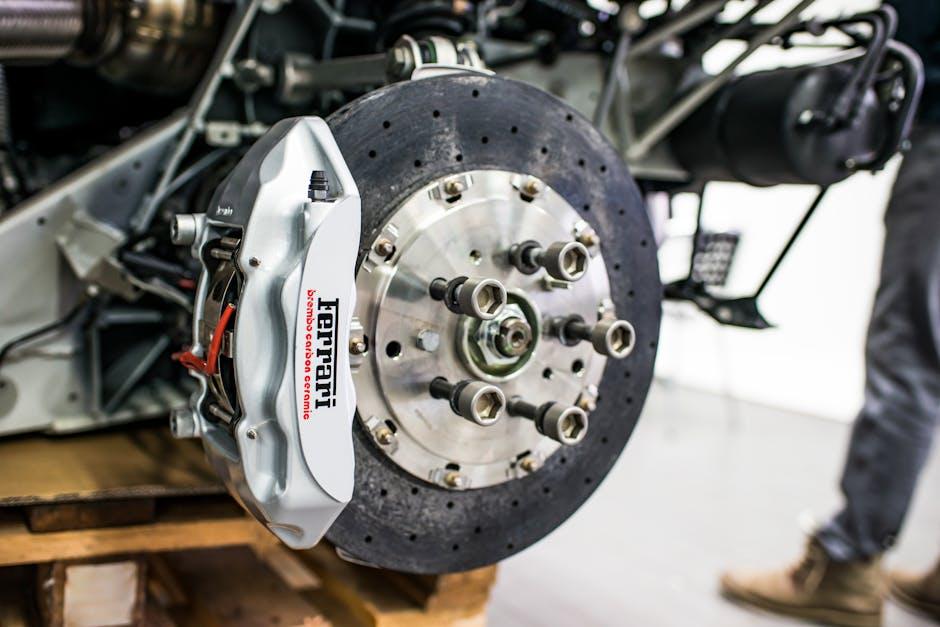
Expert Tips for Maintaining Brake Pads and Extending Their Lifespan
Extending the life of your brake pads goes beyond picking a top-tier brand—it’s about how you treat them daily. Regular inspections can catch wear early and prevent costly replacements. Pay special attention to avoiding harsh braking whenever possible, as aggressive stops generate excessive heat, speeding up pad degradation. When parking, avoid resting your foot on the brake pedal to minimize unnecessary friction. Incorporating these habits into your driving routine ensures your pads stay in prime condition for longer periods.
Routine maintenance doesn’t stop at visual checks; proper cleaning and component care play a critical role too. Use brake cleaner sprays to remove dust and debris buildup, which can affect pad performance and create unwanted noise. Also, lubricate the caliper pins with high-temperature grease to maintain smooth operation. Below is a quick checklist to optimize brake pad health:
- Perform monthly visual inspections for uneven wear
- Flush brake fluid as recommended by the manufacturer
- Address brake noise promptly to avoid further damage
- Inspect rotors for deep grooves or warping
| Maintenance Task | Frequency | Benefit |
|---|---|---|
| Visual inspection | Monthly | Early wear detection |
| Brake fluid replacement | Every 2 years | Consistent braking power |
| Caliper lubrication | Every 12 months | Smooth pad movement |
| Brake system cleaning | Every 6 months | Reduced corrosion and noise |
Q&A
Q: What should I look for when choosing the best brake pads for my car?
A: When selecting brake pads, consider factors such as material composition, durability, noise levels, stopping power, and compatibility with your vehicle. Quality brands often balance performance and longevity, ensuring safe and efficient braking under various conditions.
Q: Are all brake pads the same, or do different brands offer unique advantages?
A: Not all brake pads are created equal. Different brands specialize in various materials—ceramic, semi-metallic, or organic—that affect braking performance, noise, and wear. Top brands innovate with technology and testing, providing tailored solutions for everything from daily driving to high-performance needs.
Q: Can I rely on budget brake pad brands, or should I invest in premium ones?
A: Budget brands may offer adequate performance for casual driving, but premium brake pads typically provide better stopping power, reduced noise, increased lifespan, and greater heat resistance. Investing in reputable brands often means enhanced safety and value over time.
Q: Which brake pad brands are widely regarded as the best in the industry?
A: Brands like Brembo, Bosch, Akebono, Hawk Performance, and Wagner are frequently praised for their innovation, quality, and reliability. Each brings unique features, whether it’s low dust, higher friction materials, or durable compositions suited for various driving styles.
Q: How do I know if a brake pad brand is compatible with my car?
A: Most brands provide detailed fitment guides based on make, model, and year. It’s essential to verify compatibility to ensure proper installation and performance. Consulting your vehicle’s manual or a trusted mechanic can also help confirm the perfect match.
Q: Is professional installation recommended for most brake pad brands?
A: While some experienced DIYers can install brake pads safely, professional installation ensures correct fitting, proper torque, and adherence to safety standards. Many premium brands recommend professional service to maximize performance and warranty coverage.
Q: How often should brake pads be replaced, regardless of brand?
A: Brake pad lifespan varies with driving habits, environment, and pad material but generally ranges from 30,000 to 70,000 miles. Signs like squealing noises, reduced braking power, or visible wear should prompt inspection and possibly replacement to maintain safety.
Q: Do the best brake pad brands offer warranties?
A: Yes, many leading brands include warranties as a testament to their product quality. Warranty terms can range from limited coverage to mileage-based guarantees, giving consumers added confidence in their purchase.
Q: Can switching to a premium brake pad brand noticeably improve my car’s braking performance?
A: Upgrading to a reputable brand often enhances stopping distances, pedal feel, and heat resistance, contributing to safer and more comfortable driving—especially under demanding conditions like heavy traffic or hilly terrain.
Q: Where can I find trustworthy reviews and recommendations for brake pad brands?
A: Automotive forums, professional mechanic blogs, consumer review sites, and expert publications provide valuable insights. Cross-referencing multiple sources helps build a well-rounded understanding before making a purchase.
The Conclusion
When it comes to choosing the best brake pads for your car, quality and reliability can make all the difference between smooth stops and sudden surprises. From trusted industry leaders to innovative newcomers, the brands highlighted here offer a range of options tailored to various driving styles and needs. Ultimately, the best brake pads are those that deliver peace of mind every time you press the pedal—because when it’s about safety, compromise is never an option. So, gear up with confidence and let every journey end exactly how it should: safely, smoothly, and on your terms.

